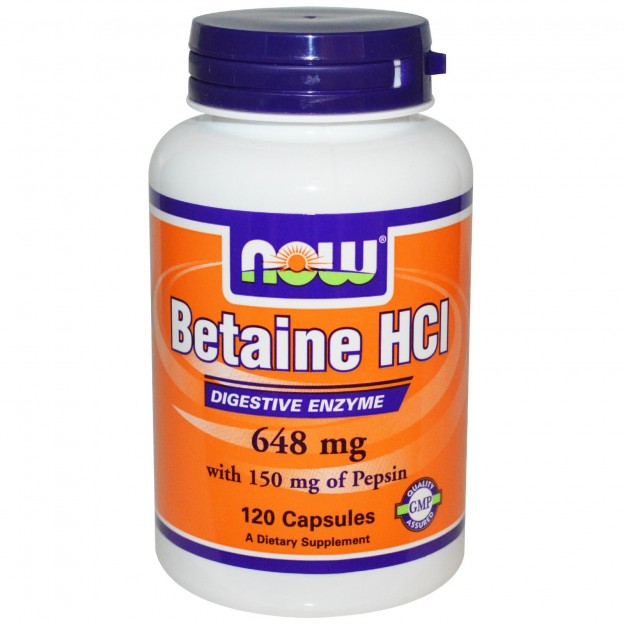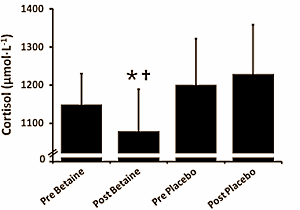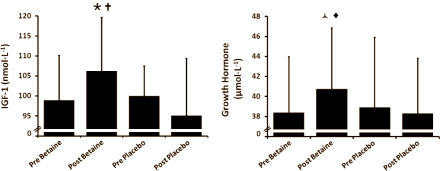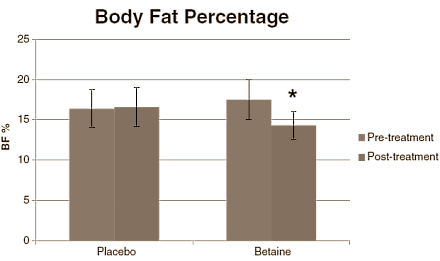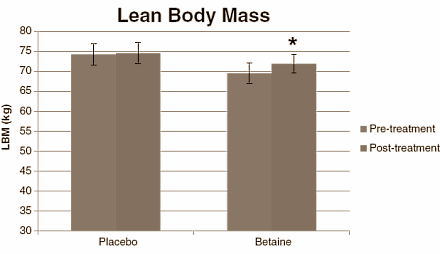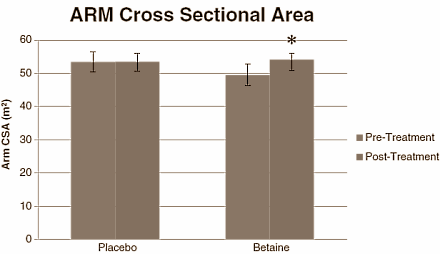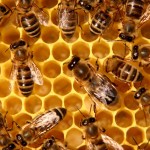Blog Entry #130
By Admin – Steroidal.com
Betaine hydrochloride, or betaine HCL, is supplemented for a number of health and performance reasons. Betaine HCL is used to treat abnormally low levels of potassium (hypokalemia), hay fever, anaemia, asthma, atherosclerosis, yeast infections, diarrhea, food allergies, heart disease, rheumatoid arthritis (RA), thyroid disorders and is also used as a liver protectant or regenerator.
The supplement industry has started to include betaine as an ingredient because it may lower harmful compounds that possibly inhibit muscle proteins.
The first study we’re going to look at is if betaine creates an anabolic environment. Supplements that do this, often then go on to show they can enhance muscle growth, strength and speed fat loss.
The study was done in August 2013 at the University of Connecticut and published in European Journal of Applied Physiology [1].
Twelve students were asked to participate in the study and had an average age of 19 and trained for around 4 years. For two weeks the students were given 2.5g of betaine daily and hormonal markers were examined.
After the supplementation period the researchers got the students to train their legs. Just before [Pre] and 15 minutes after the workout [Post] the researchers analysed the subjects’ blood. Just before the workout and 10 minutes afterwards they also took a sample of muscle cells out of the subjects’ leg muscle. This was done on betaine supplementation and after taking placebo.
Fifteen minutes after the betaine supplement had been administered, the concentration of muscle eating hormone, cortisol, was a lot less.
Anabolic hormones IGF-1 and Growth Hormone were also significantly higher in the betaine group compared to placebo. It was also found anabolic signalling proteins were also higher.
“Our findings suggest that betaine supplementation improves endocrine control of anabolic versus catabolic pathways to enhance anabolic signalling and protein synthesis, in the context of response to an acute bout of resistance and aerobic exercise performed at maximal intensity”, the US scientists conclude.
Its all well and good seeing anabolic hormones higher and catabolic hormones lower when taking a supplement, so what about actual muscle growth and fat loss effects?
The second study we’re going to look at today was done recently in August 2013, at the Coastal Carolina University in the United States [2]. This study investigated the effects of long term betaine supplementation on body composition, performance, and homocysteine thiolactone (HCTL) in experienced strength trained men.
Twenty-three bodybuilders aged between 18 and 35, followed the same training schedule for six weeks. Half were given placebo, the other half were given 2.5g of betaine daily through supplementation.
At the end of the six weeks, the bodybuilders taking betaine had lost slightly more fat.
As well as dropping fat, the bodybuilders in the betaine group also put on more lean muscle mass.
The bodybuilders arms were examined prior to the experiment and after I both groups. Again, the betaine group showed positive changed, showing their arms grew more in the betaine group.
The US researchers speculate the betaine acts like a natural synthol, adding inches to their arms due to an increase in water retention. “Because betaine is a powerful osmolyte, the increases in lean mass may have been due to cellular swelling without an appreciable increase in myofibril protein accretion.”
Limitations of these studies are that they are sponsored by betaine manufacturers.
References:
[1]. Eur J Appl Physiol. 2013 Mar;113(3):793-802.
[2]. J Int Soc Sports Nutr. 2013 Aug 22;10(1):39.




